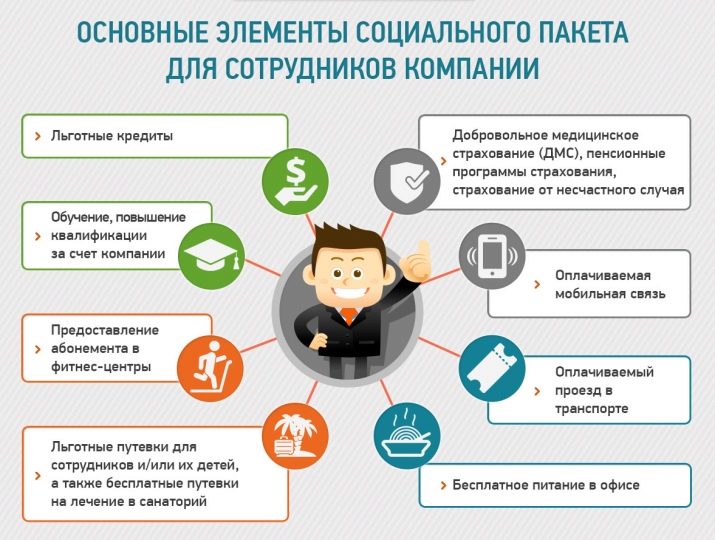Resume and the ability to behave with dignity - that's not all. You need to know what questions are usually asked at the interview and how to better answer them. This knowledge will significantly enhance the prospects of candidates.
What questions are asked to the candidate and how to answer them?
Standard
The easiest way to describe those basic questions that are usually asked to the applicant, regardless of professional affiliation. When asked to “tell about oneself,” one does not need to describe all his imaginable and imaginary virtues. On the contrary, it is required dryly and concisely state your professional qualities and achievements, show the key stages of a working biography. It is advisable, concluding the answer, to briefly summarize the previous stage of life and indicate the prospects to which you strive.
But sometimes they ask a question - what are your strengths. To pass the test successfully, it is not enough just to paint them clearly. It’s also necessary to indicate how these parties helped earlier in their professional activities. Remember: any recruiter, any employer is primarily interested in this aspect - what a candidate can bring to a company. Weaknesses are best shown as growth points, demonstrating a willingness to smooth out character defects.
It is more difficult with the question “Why did you choose our company” (another option is “Why do you want to work with us”). This question can be beaten by demonstrating that all the necessary information about the company has been collected, and that the candidate highly appreciates the opportunity to work in it.

But too active to talk about why the previous place of work was left, should not. At the same time, self-abasement and criticism of the previous management or colleagues should be avoided. Scandalists and non-living, inconsistent people do not need anyone.
Question “What do you see yourself in 5 years” ask not to find out if the applicant has a clear plan. It is necessary to answer in such a way that it is clear - the candidate can think and quickly find the answer in the most difficult situations. At the same time, the way of thinking that stands behind certain statements and the consistency of the proposed goal are evaluated.
If you are asked what are the plans for the initial period after taking office, it is worthwhile to show a clear motivation to adapt quickly and master all the nuances of a new job. Highlighting purely professional subtleties is not worth it.
It is also useful to refrain from too general phrases and from projects of "global reformism".

Non-standard
It is important to consider probable non-standard questions even for those who get a job in a long-established specialty. The most tricky formulations can be invented, say:
- how many gates are blue in Saratov;
- how many total light bulbs (taps, doors) in the building where we are;
- what would you say in a message to the whole world if you were limited to 50 words;
- if you were asked to move Baikal, how would you do it;
- if the price of a taxi and subway trip was the same, what would you choose and why;
- what would you never do, even for a billion dollars.

The number of wordings is simply unlimited. Such questions are usually invented in advance of each interview separately. Therefore, it makes no sense to look for ready-made examples of answers on the network - and it will not work out in advance to think through them. The output will be maximum emancipation and the manifestation of individual imagination. The fresher, more interesting the answer will be presented, the greater the chances of getting a job.
The question about an ideal working day, with all its simplicity, also carries pitfalls. It’s better to answer that an ideal working day is:
- when the result is better than the previous day;
- when a problem that previously seemed unsolvable was solved;
- when the goals set in advance are fully achieved;
- when it was possible to cope with a very serious problem and improve financial performance.

Sometimes they ask: what book the applicant recently read. The answer “I do not remember” or “I am at a loss to answer” will immediately disappoint the recruiter. It’s bad to say that there is no time and effort to read. Nobody needs employees who are poorly developed professionally and personally. It is best to name a really read book from a professional field, but an art edition is also suitable.
We should also point out projective issues. Formally, they are not insidious, but nevertheless, inattention to them ends very poorly for applicants. The ratings of other people and their actions express primarily the internal values and priorities of those who give such ratings. The quick answer reveals the motives that would be behind the actions of the person himself in a particular situation. A common option: describe what a manager should be (or an employee in any other position).
In this case, extreme caution should be exercised. It is better to focus on discovering optimal professional competencies. This approach, among other things, will also allow you to further confirm your own level as a specialist. If you are asked what conflicts usually arise with clients or other employees, it is useful to build on the least stressful of these conflicts.
It will be even better if the response immediately focuses on the successful resolution of the conflict and the achieved positive result.

Tailored profession
The system administrator is often asked about the components of a computer that can provoke systematic hangs. It is most correct to name the 2-3 most important devices (processor, system card, hard drive) and add “and everything else”. Sometimes they are also interested in:
- phase distribution in the network wire;
- the ability to quickly calculate the speed of information transfer on specific examples;
- ability to understand the terminology of ordinary users and programmers;
- understanding of what various low-level programs and commands of Windows, DOS, Linux, MacOS, Android are used for;
- understanding the logic of constructing IP addresses (identifying erroneous options in the list);
- knowledge of the capabilities of the main network protocols and the most common equipment.

What questions the lawyer will be asked during the interview depends on the area of specialization of the lawyer. But, as with hiring system administrators, recruiters are primarily interested in general competence. So, legal advice, especially in the commercial field, is now almost unthinkable without knowledge of foreign languages. Also often asked (regardless of specialization) about:
- limitation periods;
- grounds for declaring the transaction null and void;
- differences in types of ownership and specific types of organizations;
- the prospects of upholding one’s position in such a lawsuit in court (specific model situation);
- right from the point of view of the law in such a case;
- jurisdiction of a certain category of cases;
- differences between different legal acts.

But specific professional issues will definitely ask and potential nanny. It is unlikely that anyone will hire people who are not able to:
- name the differences between the methods of Waldorf and Montessori;
- name the outstanding teachers of the past and present;
- quickly remember and tell a fairy tale (sing a children's song);
- indicate which books on psychology or pedagogy have been read over the past six months, a year;
- describe the methods of “detaching a child from a TV or a window with toys”;
- clearly express the attitude to the question “is it possible to beat children, and when”;
- talk about your actions in a particular difficult situation.

The future marketer, getting a job in a small company, you need to clearly understand - most likely, there will be no other employees in the department. Therefore, already at the interview you need to show maximum competence. They may ask about:
- data that is needed to form a quarterly plan;
- priority channels for promoting products or services;
- desired number of press releases per month;
- factors affecting the number of guests who should be invited to participate in the meeting (conference, exhibition);
- the main difficulties in introducing to the market a fundamentally new product or service;
- understanding of the essence of the term “unique selling proposition”.

A sales representative can be asked questions in a very different way, but they all boil down to the fact that it is necessary to "sell yourself." Those who fail to do this are unlikely to cope with sales of goods and services.
A stereotyped, but still common technique is “sell me a pen” (anything can play its role). Here you will have to show maximum energy and ingenuity, but at the same time avoid any obsession with the “client”. Sometimes they ask to formulate the flaws of a real or fictitious product so that they seem to be pluses. Or, at least, they lost their sharpness in the perception of a potential buyer. Here everything already depends on the level of professionalism and the perfection of thinking.
Recruiter will pay attention not only on the wording, but also on the literacy of speech, on the grace of manners of the interlocutor. Indeed, not one single transaction depends on this, but the perception of the company as a whole.
One bad-behaving representative can spoil the idea of a company for years, even decades.

Analytics during employment, they will certainly ask questions about how he represents business processes and what tools he uses to model them. Definitely not hiring those who:
- poorly understands what a role model is and how to use it;
- unable to describe the application of the project glossary;
- It’s hard to list user stories for a particular case.
- has problems with logical thinking;
- sloppy;
- ignores details and subtle nuances;
- little versed in mathematics, psychology, and management.

What to say about the reason for dismissal?
It follows naturally avoid shifting the blame on the previous management, on other employees and even on “insurmountable circumstances”. At the same time, the slightest misunderstanding, fuzziness and vague wording will have to be ruled out. The expression "of their own free will" and the like are usually perceived as insincerity and a desire to get away from a specific answer. You can talk about an unhealthy moral atmosphere in the organization, but only if the candidate himself was not one of its creators, the main provocateurs.
Recruiters have many ways to find out about this unfortunate fact. In any case, it is necessary to exercise tact and correct wording, ratings. If the interest in the circumstances of the dismissal is too strong, the candidate should indicate that he considers the further description of the details contrary to professional ethics.
It is very good if someone is ready to openly give a recommendation and / or confirm the truth of the words.

We can talk about insufficient pay as a motivation for dismissal. But it should be strongly emphasized that the scope of tasks and the level of requirements constantly increased, but there was no doubt about the competence and accuracy of the work. You can talk about the fact that the load level clearly exceeded the capabilities of a single employee. However, then it will be necessary to elaborate carefully all the nuances of their work.
They may even be asked to describe in detail one or more business days. After all, it is extremely important for the new organization to weed out those who give in to difficulties or who cannot mobilize normally.

What to ask the employer?
About job duties
An interview should not and cannot be a one-goal game. Those who only answer questions at the interview, but do not dare to ask when applying for a job, will have a cold welcome (sorry for the tautology). Be sure to ask at least in general form: what will be the professional responsibilities. Important: if you get acquainted with specific instructions and internal rules in response, this is a very good sign. Most likely, in such a situation, a decision in your favor has already been made by 95%, and only formalities remain - which the recruiter performs.
It is also useful to ask if this is a new workplace or if someone occupied it before. The emergence of a new position usually indicates the quantitative and qualitative growth of the company. But you still need to figure out what they expect from the newcomer to the corresponding post for sure. And if this position already existed before, it’s worthwhile to find out where the employee who occupied it had gone, why and how long he had left.
Such questions, although they are standard, expected, demonstrate to the employer the seriousness of the intentions of the applicant.

Employment and Adaptation Prospects
To ask directly and clearly about whether they are going to hire or not is quite useful. If the management has already made a definite decision in this regard, then it will be possible to act immediately on the circumstances, rather than worry in ignorance. In addition, this is another way to show your interest. Among the typical questions from the applicant, which are expected (and the absence of which are often disappointed), there will be a question about the work schedule. And about the other nuances of the regime.
Recruiters will be sympathetic, even if "everything is described in the ad." It is their direct responsibility: to talk about what awaits new employees. It is advisable to be interested in processing, possible work on holidays and weekends. It is also worth initially clarifying for yourself the attitude of the leadership to smoke breaks and other breaks, lunch mode and the like. It is still important to ask:
- what will be the duration of the trial period;
- will there be additional training courses and consultations;
- to whom you can turn for help in case of certain difficulties;
- when and under what conditions can one expect to be promoted.

Providing Social Package
Questions on the social package are quite normal and predictable. If he is in the organization, of course. If not, asking about this is not worth it. It is also necessary to clarify:
- what is the procedure for providing the package;
- how will it change over time;
- what are the immediate plans for changing the social package;
- how work results (and, conversely, failures) will affect its scale.

What is not worth asking?
Traditionally, this question is answered as follows: the interview is not the place to talk about politics, religion and the nuances of the personal life of the employer and his employees. Of course, except in those cases when it is directly related to the performance of the work. But in any case, each question should have a clear and transparent goal. When they ask it is not clear what and why it is not clear, this at best leads the other side to bewilderment. At worst, suspicions begin: why all this had to be asked, is it not a bore in front of us, is it not an agent of competitors.
It is very useful to think about the wording of the questions. Sometimes, in fact, they are true and even very important, but they are presented in such a way that complications may arise. Stupid question - what does the company do; he immediately betrays a completely disinterested person. Another sure way to fail the interview is to behave as if nothing apart from the pay and the social package.
And another ban - questions with a hidden request ("can I do this and that," and so on).

End a conversation
This point is critical for any job seeker. And it is at the end of the conversation that it is appropriate to take an interest in the main range of issues that are important to him. At this point, the recruiter is internally prepared for such issues. Moreover, if they do not follow, he will be extremely puzzled. It is not recommended to ask questions that suggest a monosyllabic answer (or, conversely, those whose answer is clearly beyond the scope of the interview).
Very useful be interested in corporate culture, as well as take the contact details of a recruiter. By the way, he will only welcome the expression by the applicant of respect for the organization and praise for the work done. In any case, you should leave confidently and showing your moderately positive attitude. Goodbye should be as polite as come.

Recommendations
You can and even need to ask about the results of the interview, but you need to do this without any obsession. Any experience is worth being reminded of during a conversation. It is very important to have copies of all documents that you might need at least potentially. Going for an interview is worth:
- think over the route in advance;
- free up more time (as the meeting may be delayed);
- dress in a stressed business style (unless future work requires otherwise);
- practice your answers in front of a mirror, in front of a camera or another person;
- have a good rest and sleep well;
- to leave in advance to prevent traffic jams and other problems;
- tune in to any possible outcome;
- think over what questions and tests you yourself would suggest at the place of the employer.

In the process of the conversation itself, it is desirable:
- clarify all that is unclear;
- show sincerity and goodwill;
- avoid excessive frankness in everything that does not concern professional aspects;
- carefully study all the documents that need to be signed;
- fill out the proposed questionnaire to the end (if possible);
- avoid denying real and irrefutable facts showing you the bad side.










